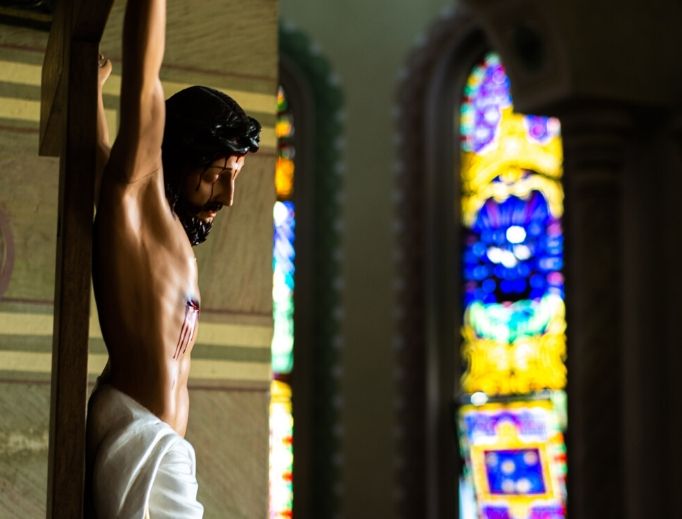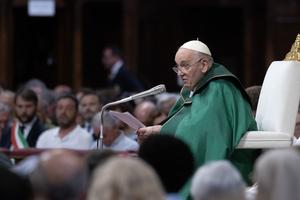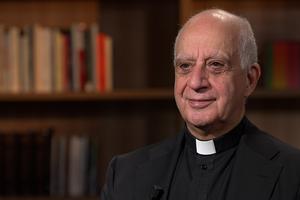God’s Mercy and the Saving Power of Christ’s Grace
User’s Guide to Sunday, March 15

Sunday, March 15, is the Third Sunday of Lent (Year A). Mass readings: Exodus 17:3-7; Psalm 95:1-2, 6-7, 8-9; Romans 5:1-2, 5-8; John 4:5-42.
Anyone who has ever had to take a long car trip with small children — and without the benefit of personal DVD players — knows what it is to be subjected to a heroic test of patience. The repetitive questions (“Are we there yet?”), the frequent stops (“I have to go to the bathroom … again”), and the constant complaints (“I’m bored.” “Johnny’s on my side of the seat!”) are enough to elicit a negative reaction from even the most saintly driver. We might initially think that this is the same type of testing that God experienced in the wilderness from his own people, when, immediately upon being brought out of captivity in Egypt, they began “to grumble” about food, water and the length of time the journey was taking.
Their grumbling was, however, more serious in nature than the kind of childish complaining of the road-trip variety since it was a matter of conspiratorial rebellion against the one who saved them. In fact, their grumbling was marked by explicit rejection of God’s salvation and a desire to return to a life of servitude in Egypt.
As we see in the first reading today, God temporarily overcame this grumbling by providing for his people’s every need through his servant Moses. Nonetheless, their rebellious ingratitude would eventually reach a crescendo in their construction of a golden calf to worship (see Exodus 32). Fortunately for the people of Israel, God had foreseen such rebelliousness and appointed Moses as a patient intercessor who would continually plead for them before God. In the aftermath of the golden-calf incident, God immediately resolved to destroy the people (32:10), but Moses stepped into the breach and dissuaded God from destroying them through his intercessory prayer (Exodus 32;11-14; Psalm 106:23). In fact, rather than step aside and witness God’s destruction of the people, Moses was even willing to die with them (Exodus 32:32).
One particularly important detail to note about Moses’s intercessory activity is that it preceded the people’s repentance. This says something about God’s mercy and the nature of repentance, namely that repentance is only possible because of the prevenient grace of God’s mercy. In other words, it is only because God had first provided the opportunity for the people to repent that they were able to turn from the evil they had done.
Just so, we are only able to repent because God has given us the opportunity to do so through the sacrifice of his only-begotten Son, the New Moses and perfect intercessor, Jesus Christ.
Paul makes this clear in his rather sobering proclamation to the Romans: “For Christ, while we were still helpless, died for the sake of the ungodly” (Romans 5:6). The Greek word that Paul uses for “helpless” here (asthenēs) denotes a state in which a person is absolutely unable to do anything, typically because of illness or serious physical ailment. This is precisely the position that people find themselves in without the saving power of Christ’s grace. We are so helpless and weak that we cannot even repent, i.e., turn away from our sin, without the grace won through the saving action of Jesus Christ on the cross. With this truth in mind, we might look at Lent in a whole new way. Far from a 40-day marathon of “extra” obligations, this is a season marked by Christ-given opportunities to turn away from our sin and weakness and to turn back to God.
Dominican Father Jordan Schmidt is an instructor in sacred Scripture
at the Pontifical Faculty of the Immaculate Conception
at the Dominican House of Studies in Washington, D.C.
- Keywords:
- dominican father jordan schmidt
- father jordan schmidt, op
- jesus
- mercy of god
- salvation
- saving grace
- user’s guide to sunday

















